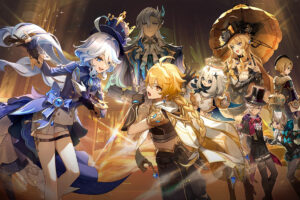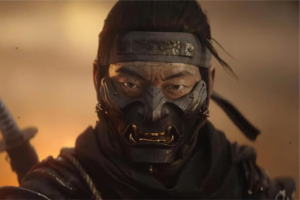Whoopsies! Yikes! Oof! The expressive interjections uttered by the characters in Fall Guys may be widely understood, but it is nuanced localization that makes this quirky game attractive to players around the globe. In this article, we’ll explore the unique challenges of translating this game’s zany humor, puns, and references into different languages while preserving its charm and accessibility.
Humor Everywhere
Fall Guys’ slapstick humor and silly obstacles get people everywhere laughing, and the game’s localizers have capitalized on its universal appeal by adapting references when necessary but leaving core comedic elements untouched.
As an example, the localization team decided to adapt the giggle-inducing “Hex-A-Gone” level name in each language version to maintain the play on words for this knockout round where characters must try to stay on top of hexagonal platforms. This decision resulted in fun names like “Hexagonía” in Spanish and “Hexagone Infernal” in French.

While translating wordplay certainly calls for creative thinking, pop culture references in the game present an even greater localization challenge. One example is a reference to this classic doge meme, which features a Shiba Inu and its internal monologue, written in broken English. The Many Knockout and Much Fall costumes reference this meme, but the wording is difficult to replicate in other languages, and the reference may be lost on players in locales where this meme was less popular. In most cases, a direct translation of these costume names would leave players scratching their heads, so this reference called for a bigger transcreation effort. In the end, “Many Knockout” became “Shiba mignon” in French and “Przepychanki, wow” in Polish. For other languages, like Japanese, the team decided that the best option was to leave the reference in English to avoid confusion.
Beyond Words: Emojis to the Rescue?
Sometimes, words aren’t enough. To overcome language barriers, Fall Guys relies heavily on emojis and visual cues to convey emotions, reactions, and instructions and to create a universal understanding of the game’s chaotic fun. But it does so with care. It’s essential to recognize that the usage and interpretation of emojis can vary significantly across cultures. What may convey warmth and friendliness in one culture could be perceived quite differently in another. For example, the thumbs up emoji symbolizes approval in Western cultures but can be considered offensive in parts of the Middle East (equivalent to giving the middle finger). So, to effectively transcend borders, localizers need to keep up to date with the different usages of emojis around the world.
Accessibility for All
Fall Guys has enhanced its broad appeal by providing subtitles and onscreen text in multiple languages so players can explore the game’s menus and objectives in their native tongue.
Care has even been taken to keep the experience immersive for players who speak different variants of the same language. LATAM Spanish was added as a supported language after Spanish from Spain, so most of the existing terminology was directly inherited from the previous variant. However, it is evident that the localization team made efforts early on to find solutions that would work for both variants when coming up with names for cosmetics, bundles, events, rounds, shows, etc. It is not uncommon for the same word to have a different meaning in each Spanish-speaking country, so this was no small feat. By selecting neutral language and avoiding terms that may be innocent for Spaniards but inappropriate or misleading for LATAM users, and vice versa, the localizers have helped Spanish-speaking players keep their heads in the game.

Franchise Crossovers
Fall Guys regularly hosts new seasons where it debuts themes, content and costumes and introduces crossover characters from different franchises. As new elements are introduced, localizers must take care to ensure the terminology used is consistent. For example, in one season, Fall Guys introduced Caveman SpongeBob, Surprised Patrick, and Handsome Squidward costumes, so localizers had to deal not only with well-known and beloved characters from Bikini Bottom but also with their memeified versions. It is of utmost importance that the characters’ official names for each locale are used (for example, ‘Patricio’ for ‘Patrick’ in Spanish, ‘Carlo’ for ‘Squidward’ in French, etc.), but linguists have a bit more freedom to choose the character’s epithet, as long as it fits their look and depiction in memes.

Terminology Management
While adaptations must be as fresh and creative as possible, they must also be consistent with previous jokes or references to other related items within the game. To keep everything straight, localization teams use sophisticated term management systems and pay close attention to context, which is hugely important and has a direct impact on skins, interfaces, costumes, etc. In Fall Guys, HugalotlHugalotl, LovealotlLovealotl and SnugglotlSnugglotl are three costumes that are part of a single set and all of them represent a cute axolotl. Since terms like these often first appear in different batches, translators could mistakenly take different approaches to them, unintentionally undermining the unity of the set. Luckily, QA and LQA teams are trained to detect these instances and make sure that consistency and coherence is always maintained.
A good terminology management system is also key when it comes to blog posts or promotional content, where localizers need to identify the in-game terminology and develop new content that aligns with how these terms are already dealt with in each language. Translators in charge of these materials cannot name what has not been named before and cannot provide new twists to existing terms that would disrupt how these are known within the game for each locale.
Celebrating Diversity
Fall Guys embraces a vibrant and diverse player base. The localization team enhances the game’s draw through sensitive and inclusive adaptation of character customizations and the creation of costumes that resonate with different cultures. Regional outfit options, like the Korean hanbok or the Mexican sarape, cater to specific audiences and celebrate cultural pride, endearing the game to players worldwide.

The Takeaway
Even when a game has limited in-game text and dialogue, thoughtful and meticulous localization is key to creating a seamless experience for gamers around the globe. Achieving a top-notch localization that preserves humorous elements and maintains consistency across seasons and material types requires incredible coordination and teamwork. Fall Guys is a shining example of what can be achieved with a professional localization team that is well-versed in terminology management. When you hit the mark, all the work that went into your localization becomes invisible.



